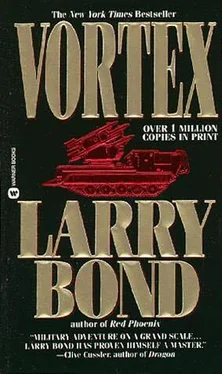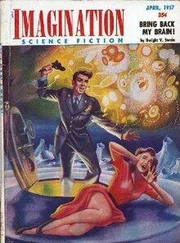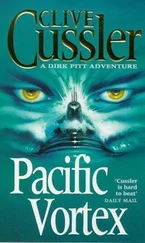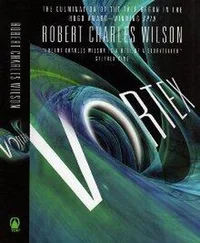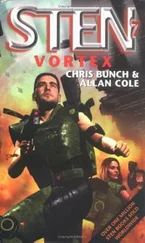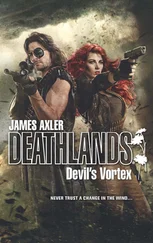“And there’s always the uncertainty of war. 11
“And until you take Pretoria and drive the Cubans out, South Africa will be bloody chaos. “
“You now understand the situation in South Africa, Senator. “
PRESIDENT’S OFFICE, THE UNION BUILDINGS, PRETORIA
Another meeting had ended. Though perhaps meeting was the wrong word, Karl
Vorster thought wearily. Once again, he’d been forced to lecture a cabinet that resembled a flock of helpless sheep more than anything else.
Depressed and angry, he’d left his generals and deputies arguing over the map while he retreated to his private office. He slumped in his leather-backed chair, feeling his age and a few years more. None of those idiots had anything useful to contribute. Instead, they bickered and squabbled, interfering with every political and military step he took.
Some were traitors, Vorster knew. A few were actively in league with the enemy, and others would rather serve themselves than South Africa. Most of his advisors, though, were simply fools, unable to see with his vision or act with his daring. Panicked, they waffled and wailed while their nation was being shattered simultaneously both from within and from without.
Cut off from outside supply, invaded by Cuban and Allied armies, and with rebels and guerrillas running wild inside its borders, South Africa was on the verge of complete defeat.
Vorster scowled. He had no allies left. Even his most trusted political supporters counseled abject surrender.
Still, he had faith that his nation would rise again. Defeat by foreign armies was part of the Afrikaner heritage, but his people, the sturdy
Boer farmers, had always survived and ultimately triumphed. It was the farmer, the man of the earth, who had always saved South Africa.
Vorster frowned. The mines with their diamonds and gold and platinum had been a source of power, but now they were attracting the hyenas. The republic stood like a wounded lion at bay with the scavengers closing in.
The lion might put up a heroic fight, but it would fall in the end.
He glanced at the small, but beautifully detailed, map of South Africa hung on his office wall. It showed every major road, city, and industrial center. It didn’t show the territories captured by the advancing enemy armies-but it didn’t have to. Those lines were burned in his very brain.
The Cubans, the Americans, and the British were all closing in like a vise around the Witwatersrand and its rich mineral resources.
His hands tightened into clenched fists. If he and his followers went down in blood and flame, he only hoped his enemies would choke on their newfound wealth. God grant that they would fight over the mines and smelters until only a wasteland remained…. Karl Vorster stopped there, suddenly struck by an idea breathtaking in its very boldness. South Africa’s fate had seemed sealed, its future dark and grim. But now he saw a new road, a new option-one aimed squarely at the heart of his enemies’ plans.
STATE SECURITY COUNCIL CHAMBER, PRETORIA
Vorster’s cabinet meetings always started quietly. This day’s afternoon session was no exception. The intelligence briefer, an SADF major, gave the assembled group the latest batch of bad news in a steady monotone, his body subconsciously poised for flight. The President’s rages were legendary, and even the carefully filtered data he saw was often enough to send him into orbit.
Today, though, Vorster sat quietly, almost calmly. He seemed preoccupied by the document in front of him, and utterly uninterested in the briefer’s recitation of battlefield disasters and guerrilla attacks. He only nodded as the major finished and hastily excused himself.
Then Vorster looked up and smiled, an expression that seemed almost frightening on his haggard face.
“I bring good news, my friends. God himself has shown me the way to defeat our foes and save our people.”
What? He’s done it, thought Gen. Adriaan de Wet, he’s finally retreated completely into his world of fantasy. The general quickly studied the faces of the surviving cabinet members. Working with Karl Vorster forced one to develop a poker face, but he could read them well enough.
Marius van der Heijden looked troubled, but seemed the least affected.
The minister of law and order even seemed ready to believe the President really had found an answer to their problems. The rest showed their disbelief in a dozen different ways. Many of the military men on de Wet’s staff stared down at the map, looking for some operational scheme that they had overlooked.
“The solution to our present situation is clear if we go back to basics.
Our enemies are not attacking us for political reasons, but for economic ones. ” Vorster rose from his chair, towering over his assembled followers.
“The West gladly suffered our existence for forty years. The communists attacked us verbally and sent black guerrillas to terrorize us, but they did not move openly. Behind the scenes, the Soviets were very happy to make joint agreements on gold and diamond sales.”
De Wet and the others nodded, a little impatiently.
Vorster continued, “As long as the gold and platinum and chromium and all the rest were produced in steady stream, the world was happy. But at the first sign of trouble in the mines, they turned on us. The world’s two biggest power blocs, with everyone else cheering them on, have attacked our nation-nearly tripping over each other in their greed. “
Vorster smiled again, even more grimly this time.
“So what we must do is clear. We must threaten to destroy what they hold so dear. We will send an ultimatum to our enemies, threatening to render these mines useless unless they leave our lands immediately.”
De Wet’s puzzlement was so strong that he forgot to mask his feelings, but his expression was mirrored around the table.
Vorster swept his arm around the room, his voice filled with excitement.
“Can’t any of you see it? Think! The world’s financial markets have been frightened by a temporary disruption of the resources we hold. Think of how much pressure those money-grubbing bankers will put on their governments if they think the supply will stop altogether.”
De Wet could not wait any longer.
“But how? We can dynamite some of our mines, but they could always be reopened. And most are nothing more than vast open pits impossible to destroy.”
Vorster nodded.
“True enough, General. But the answer is not dynamite.
It is radioactive dust-the wastes produced by our reactors.” If he noticed the instinctive horror on the faces around him, he didn’t show it.
“Our threat will be simple and credible. Unless the attacking armies cease fire immediately and withdraw from our territory, we will scatter radioactive waste over every mine and smelter under our control.”
De Wet found himself intrigued by the idea. The highlevel radioactive wastes produced by South Africa’s two nuclear reactors could contaminate the surfaces of the mines and other industrial facilities for hundreds, if not thousands, of years. Decontamination would be both fantastically difficult and prohibitively expensive. What Vorster had in mind would be a powerful threat to the world’s strategic minerals supplies.
De Wet looked up.
“But what do we do, Mr. President, if they call our bluff?”
Vorster’s face reddened and he shouted, “It is not a bluff! If they continue to advance, we will wreck these mines!”
He paused and spoke more calmly, almost pleading.
“Don’t you see? We have never truly needed this wealth to survive as a pure society. It has been a source of endless trouble-of
Uitlander speculators and unruly black laborers. The trek boers and early farmers built our nation. And when these mines are gone, our farms will remain.”
Читать дальше
